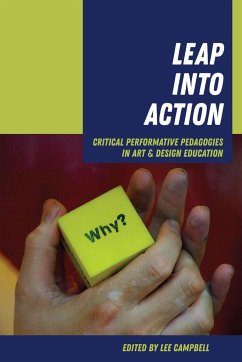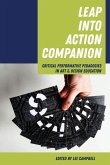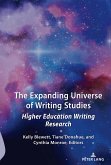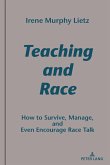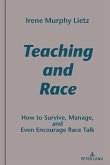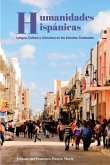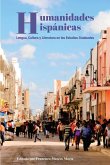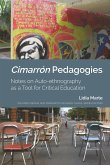Leap into Action asks: "What happens when performative arts meet pedagogy?" and views performative teaching as building students' understanding of complex ideas and concepts "through action." It provides the theoretical, philosophical, and conceptual terrain by setting forth the scholarly rationale as to what performative pedagogy is at this moment across Art & Design education. Contributions are made from individuals and groups across art and design disciplines who deploy innovative pedagogic approaches with an emphasis on performativity. To underline that Art & Design does not only happen within the institution, Leap into Action provides rich intertextual material that draws upon the experiences of practitioners. Leap into Action is intended to prompt new angles from which to examine one's practice including and beyond pedagogy, mainly in terms of art, design and performance, and disciplines further afield. Whilst Leap into Action engages with performative pedagogies through disruptions, interruptions, tricksters, liminalities, affective bodies, sensory encounters, and technoparticipation, it calls into question what risk-taking means in an arts school context and the tension (even paradox) that exists between wanting to create a safe, welcoming, and inclusive environment and provoking students out of their comfort zones through experimental performative pedagogy and playfulness. Whilst engagement with performative strategies may be a 'risky' strategy, the rewards can be great. Enter the unknown, take a leap into action, and have fun.
" Leap into Action is a timely and lively compendium of the possibilities of a performative arts pedagogy. Set against the chilling effect that neoliberal forms of metricised assessment and satisfaction surveys have upon critical attitudes in the academy, Campbell's book is a clarion call to embrace the risks of active learning. It challenges us to fear not the personal or institutional exposures of performance in the classroom, but instead to be wide-eyed and attentive to what we might learn from it, both about ourselves and our ethical relation to others." (Gavin Butt, Northumbria University, Newcastle)

